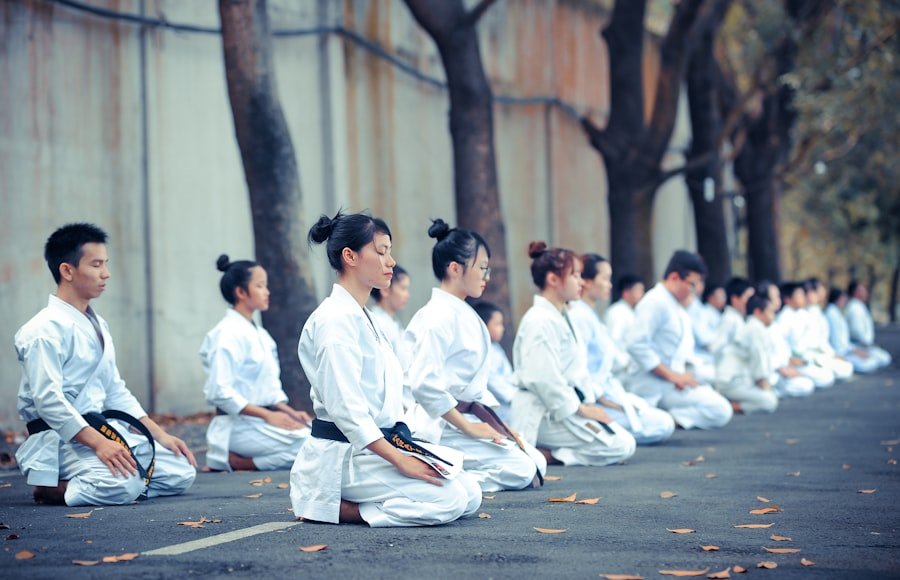For martial arts practitioners, the journey towards mastery is not solely about physical prowess; it also encompasses a deep understanding of the philosophies and traditions that underpin these ancient disciplines. Learning Chinese can significantly enhance this journey. The language serves as a gateway to the rich tapestry of martial arts history, philosophy, and techniques that are often rooted in Chinese culture.
By acquiring proficiency in Chinese, practitioners can access original texts, teachings, and insights that are otherwise lost in translation. This linguistic skill not only enriches their training but also fosters a deeper connection to the art form itself. Moreover, understanding Chinese can facilitate better communication with instructors and fellow practitioners, particularly those who are native speakers.
This connection can lead to a more immersive learning experience, allowing martial artists to grasp subtle nuances in techniques and philosophies that may be overlooked when relying solely on translated materials. The ability to engage in discussions about martial arts in its original language can also enhance camaraderie within the community, creating bonds that transcend cultural barriers. Spaces are filling up fast! Register for Chinese classes at the LC Chinese School in Oslo today.
Table of Contents
ToggleSummary
- Learning Chinese can provide access to authentic martial arts instruction in Oslo
- Language acquisition enhances cognitive function for martial arts practitioners
- Chinese language proficiency is important for studying traditional martial arts texts
- Communicating with Chinese martial arts masters can provide valuable insights and advantages
- Learning Chinese in Oslo can deepen your connection to martial arts and Chinese culture
How Language Acquisition Enhances Cognitive Function
The process of learning a new language is a complex cognitive exercise that engages various mental faculties. Research has shown that language acquisition can enhance cognitive function in numerous ways. For instance, it improves memory, problem-solving skills, and critical thinking abilities.
These cognitive benefits are particularly advantageous for martial artists, who must constantly analyse movements, strategies, and techniques during training and competition. By learning Chinese, practitioners not only gain linguistic skills but also sharpen their mental acuity, which can translate into improved performance on the mat. Furthermore, the intricacies of the Chinese language—such as its tonal nature and character-based writing system—challenge learners to develop greater attention to detail and adaptability.
This heightened awareness can be beneficial in martial arts, where precision and timing are crucial. As practitioners navigate the complexities of both language and movement, they cultivate a mindset that embraces discipline and perseverance, qualities that are essential for success in martial arts.
The Influence of Chinese Culture on Martial Arts

Chinese culture is deeply intertwined with the development of various martial arts forms. From Tai Chi to Wing Chun, each discipline reflects the philosophical and cultural values of its time. Understanding these cultural contexts is vital for practitioners who wish to appreciate the full depth of their chosen art.
Learning Chinese allows martial artists to delve into the historical narratives, folklore, and philosophical texts that have shaped these practices over centuries. This cultural immersion enriches their training experience and fosters a greater appreciation for the art’s origins. Moreover, Chinese culture places significant emphasis on concepts such as harmony, balance, and respect—principles that are integral to martial arts training.
By learning the language, practitioners can engage with these concepts more profoundly, allowing them to embody these values in their practice. This cultural understanding not only enhances their technical skills but also nurtures personal growth and character development.
The Role of Language in Understanding Traditional Martial Arts Texts
Traditional martial arts texts are often written in classical Chinese, a language that is rich in metaphor and nuance. These texts contain invaluable wisdom regarding techniques, philosophies, and training methodologies. However, without a solid understanding of the language, much of this knowledge remains inaccessible.
Learning Chinese equips martial artists with the tools necessary to interpret these texts accurately, enabling them to extract insights that can significantly enhance their practice. Additionally, many martial arts schools emphasise the importance of lineage and tradition. Understanding the original texts allows practitioners to connect with their instructors’ teachings on a deeper level.
It fosters a sense of continuity with past masters and an appreciation for the evolution of techniques over time. This connection to tradition is vital for those who wish to honour the legacy of their art while forging their own path.
The Connection Between Language and Body Movement
Language is not merely a tool for communication; it also shapes how we perceive and interact with the world around us. In martial arts, this connection between language and body movement is particularly pronounced. The terminology used to describe techniques often reflects the underlying principles of movement and strategy.
By learning Chinese, practitioners gain a more nuanced understanding of these terms, which can enhance their ability to execute techniques effectively. Moreover, many martial arts schools incorporate verbal cues during training sessions. Understanding these cues in their original language allows practitioners to respond more intuitively and fluidly during practice.
This synergy between language and movement fosters a more harmonious training experience, where verbal instruction complements physical execution.
The Importance of Chinese Language Proficiency in Studying Martial Arts

Proficiency in Chinese is not just an asset; it is often essential for those who wish to study martial arts at an advanced level. Many esteemed martial arts schools in China require students to have a basic understanding of the language to fully engage with their curriculum. This requirement underscores the importance of language proficiency in accessing authentic teachings and methodologies.
Furthermore, as martial artists progress in their training, they may encounter complex concepts that require a deeper understanding of the language. Advanced techniques often come with intricate terminology that cannot be adequately conveyed through translation alone. By mastering Chinese, practitioners position themselves to fully grasp these advanced concepts and apply them effectively in their practice.
How Learning Chinese in Oslo Provides Access to Authentic Martial Arts Instruction
Oslo has become a vibrant hub for martial arts enthusiasts seeking authentic instruction from experienced masters. The LC Chinese School offers specialised courses tailored for those interested in learning Chinese specifically for martial arts purposes. By studying at this institution, practitioners can immerse themselves in both the language and the culture that underpin their art form.
The school’s curriculum is designed to bridge the gap between language learning and martial arts training. Students not only learn vocabulary related to techniques and philosophies but also engage in discussions about traditional practices and contemporary interpretations. This unique approach ensures that learners gain practical language skills while deepening their understanding of martial arts.
The Impact of Language on Martial Arts Philosophy and Meditation Practices
Martial arts philosophy often encompasses profound concepts related to mindfulness, discipline, and self-awareness. These philosophical tenets are frequently articulated through language that carries specific cultural connotations. By learning Chinese, practitioners can engage with these philosophical ideas more authentically, allowing them to integrate them into their training and daily lives.
Meditation practices within martial arts also benefit from an understanding of the language. Many meditation techniques are rooted in traditional Chinese philosophies that emphasise harmony between mind and body. By comprehending the terminology associated with these practices, practitioners can cultivate a deeper sense of presence during meditation sessions, enhancing their overall experience.
The Advantages of Communicating with Chinese Martial Arts Masters
One of the most rewarding aspects of learning Chinese for martial arts practitioners is the opportunity to communicate directly with masters from China or those who have trained extensively in traditional settings. Engaging with these masters allows students to gain insights that are often not found in textbooks or translated materials. The ability to ask questions and receive guidance in the original language fosters a more dynamic learning environment.
Moreover, direct communication with masters can lead to personalised feedback on techniques and strategies. This tailored instruction is invaluable for those seeking to refine their skills and deepen their understanding of their chosen art form. The relationships built through this communication can also provide mentorship opportunities that extend beyond formal training sessions.
The Role of Language in Understanding Martial Arts History and Tradition
Martial arts are steeped in history and tradition, with each style carrying its own unique narrative. Understanding this history requires an appreciation for the language used to document it. Many historical texts detailing the evolution of various martial arts forms are written in Chinese, making proficiency in the language essential for those wishing to explore these narratives fully.
By learning Chinese, practitioners can access primary sources that illuminate the origins of their art forms and the cultural contexts from which they emerged. This historical perspective enriches their training experience and fosters a sense of respect for the lineage they are part of. It also encourages practitioners to reflect on how these traditions continue to evolve in contemporary practice.
How Learning Chinese in Oslo Can Deepen Your Connection to Martial Arts
In conclusion, learning Chinese at institutions like LC Chinese School in Oslo offers martial arts practitioners an unparalleled opportunity to deepen their connection to their art form. The school’s tailored courses provide a unique blend of language acquisition and cultural immersion that enhances both technical skills and philosophical understanding. As students engage with the language, they unlock access to authentic teachings, historical texts, and direct communication with masters.
This journey into the Chinese language not only enriches one’s martial arts practice but also fosters personal growth and cultural appreciation. By embracing this linguistic challenge, practitioners can cultivate a more profound connection to their art form—one that transcends mere physicality and delves into the heart of its rich traditions and philosophies. Ultimately, learning Chinese is not just about mastering a language; it is about embarking on a transformative journey that deepens one’s understanding of martial arts as a holistic discipline rooted in history, culture, and personal development.







